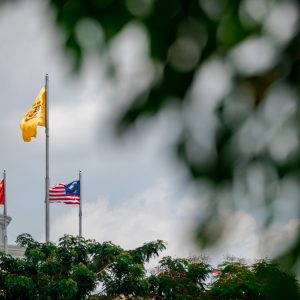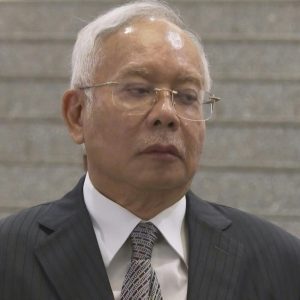Lebanon lawmakers fail to elect president at 12th attempt
Beirut, Lebanon (AFP):
Lebanese lawmakers have failed for a 12th time to elect a new president, as bitter divisions between the Iran-backed Hezbollah and its opponents risk miring the country in a protracted power vacuum.
Crisis-hit Lebanon has already been without a head of state for more than seven months. The previous attempt to elect a president was held on January 19.
The vote for the presidency, reserved for a Maronite Christian under Lebanon’s delicate sectarian power-sharing system, pitted the Hezbollah-backed Sleiman Frangieh against financial official Jihad Azour, who has mainly been endorsed by Christian and independent legislators.
But neither had enough support to get across the line, with Azour garnering 59 votes and Frangieh 51 in the 128-seat parliament.
All lawmakers showed up for the election, but many left the chamber after placing their ballots in the box and quorum was lost before a second round of voting — where the winner only requires 65 ballots.
“Enough passing the buck… for prolonging the vacuum,” parliament speaker Nabih Berri said in a statement after the session.
“Only consensus and dialogue” will speed up the election of a president, he added, without immediately scheduling a new ballot.
Analysts said the vote risked further entrenching a political stalemate, dimming hopes of saving the economy after three years of meltdown.
“At this stage, the most likely scenario is a prolonged vacuum,” analyst Karim Bitar said.
‘Threats’
The international community has urged politicians to elect a consensus presidential candidate who can help the country enact reforms required to unlock billions of dollars in loans from abroad.
On top of lacking a president, Lebanon has been governed by a caretaker cabinet with limited powers for more than a year.
By convention, the premiership is reserved for a Sunni Muslim and the post of parliament speaker goes to a Shiite Muslim.
Samy Gemayel, head of the Christian Kataeb party, called the support for Azour an “uprising” against “diktats and threats”, in reference to accusations Hezbollah is seeking to impose its preferred candidate.
The analyst Bitar said Wednesday’s vote, like the previous 11 attempts, was likely “a way for political forces to gauge their respective electoral weight” and see how many votes they could get.
A stalemate could pave the way for protracted negotiations “that would ultimately reach a third-man solution”, he said before the ballot.
The United States and France on Tuesday renewed calls for Lebanese lawmakers to cooperate and elect a new president.
French foreign ministry spokeswoman Anne-Claire Legendre had urged MPs to “take this date seriously” and “not to waste another opportunity”.









